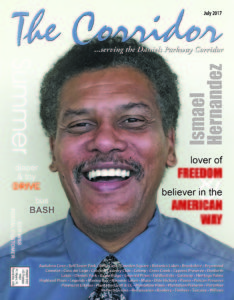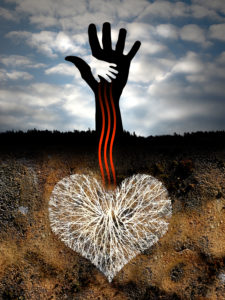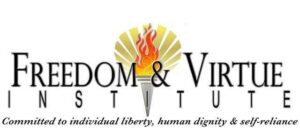“My Life Is Precious ” – A Reflection by Ismael Hernandez
 A few years ago, my wife and I were awakened by a loud thump on our door. We rushed out to find the meaning of the commotion only to find a young girl from our youth group heavily leaning against the door and crying. We helped her in and discovered that for many months she had been taking care of her three siblings all by herself while her mother was out there, somewhere, ravaging on drugs.
A few years ago, my wife and I were awakened by a loud thump on our door. We rushed out to find the meaning of the commotion only to find a young girl from our youth group heavily leaning against the door and crying. We helped her in and discovered that for many months she had been taking care of her three siblings all by herself while her mother was out there, somewhere, ravaging on drugs.
From time to time the mother would reappear for some fading moments, only to fade away again, like a ghost, into the darkness and the shadows of the drug underworld.
We took her in for a while till she decided to go back and face the dreaded reality; one with which at times she coped by hurting herself. To make a long story short, that same girl is today happily married, is a nurse, and joined the board of our institute to support the cause of freedom.
Her mother, at one time the victim of her appetites, has remarkably recovered. Yes, she is still struggling but is back at the home with her kids and trying to put her life together. It is as if among the ashes of a broken existence she found an unfamiliar strength, a strength that helped her choose to change. At one point she stood on her feet and shouted, “My life is precious and I will fight for my life.”
Every day, the drama of human existence shows itself before us, and we are confronted by it and challenged to give an answer to it.
The most obvious and unarguable source for the human capacity to choose, is that we are free beings called to make or break our life by the choices we make. Unfortunately, for too long we have believed a lie. The lie that there is some entity that can rescue us from ourselves. Our fate is the result of forces outside of our control, structures that impede our success. Ironically, the same structures that harm our existence are the ones called to repair the damage. Government has become an idol the poor hate but still worship.
For long I believed that lie, the lie that we are tokens in an inexorable historical process that swallows our individuality and can be countered only by another determinism, the one that collapses the whole of society into the affairs and institutions of the state.
Let me read to you briefly from my father’s FBI record.
Proletarian class struggle is the fountain that will bring about the collapse of the capitalist institutions. The function of our workers party is to expand this struggle from the present economic phase to a political phase. That is, shift from claiming rights against particular corporations and Capitalist bosses into a war against the whole system, claiming profound economic, social, and political transformations.
We are victims of forces and the solution is found not on individuals pursuing their interest but in using our victimization as a collectivized tool of class struggle. But this formula carries a drawback that I believe is virtually devastating to our people. This drawback has been at the heart of poverty alleviation efforts in America where the unique and unrepeatable human person is lost in an expansive and yet shallow sea of statism. The drawback ties the poor to their victimization by linking power to his status as victim.
People talk about greed actualized by human freedom? Real greed comes when the individual discovers that the great behemoth of government is not bringing about the expected outcome, and the hopes of salvation from above fade. Then, he becomes an island, hoarding what he can from the pieces of the broken collectivist dream. What sociologists call social disintegration is nothing more than the spectacle of individuals playing fast and loose with other individuals in relationships where trust and responsibility are a must.

The social victim is collectively entitled but individually demoralized. Since he has been made a victim by society he comes to believe that his condition is dependent more on external forces than by his own initiative. Without realizing it, he transfers his value to a structure, he becomes a slave. And we often contribute to his bondage!
Power found in victimhood may incentivize political action instead of economic initiative and rabid activism against society combined with passivity within the sphere of his personal life. What a tragedy!
The lure of this tragic affair offers personal innocence and corporate indictment. But “Innocence is ignorance”, Kierkegaard says. Ignoring our personal responsibility for our lives is the death of aspiration, the erasing of true hope.
The truth is that my life is my responsibility, and no one else’s. When we recognize the responsibility of the poor we uplift them, we highlight their dignity. When we don’t, we hurt them, and I don’t care what we do for them, we still hurt them. There is no true compassion in treating people like dogs. The spirit of poor communities simply cannot breadth under the weight of the free stuff we dump at them.
Lumping people into collectivized categories of “poor” or “rich”, “black” or “whites” is an affront against human dignity as it erases the face of people, herding them into plantations of dependency and sameness. The fact remains that the individual is the seat of all energy, creativity, motivation, and power.
Pursuing our interest is the best antidote against poverty and the greatest contribution to the good of others. To pursue my interest is simply to go after what is dear to my heart, what makes me move in the direction of wholeness and what triggers my desire for cooperation. We are most strongly motivated when we want something for ourselves. “Do onto others as you would have them do onto you.” We lend our energy to collective endeavors better when we are engaged in what we want for ourselves.


